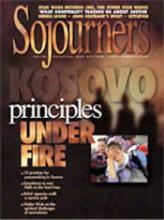If the greatest weapon in the hands of the oppressor is the mind of the oppressed, then perhaps the greatest victory for the corporate class has been the general acceptance among the masses of the inevitability of capitalism as the only viable system for running the world. This makes David Korten's The Post-Corporate World: Life After Capitalism both timely and much needed.
The church once imposed a dogmatic intellectual tyranny that blocked true social and spiritual progress. The modern equivalent of this tyranny, Korten argues, is capitalism and its corporate priests who peddle the idea that consumerist society is the highest stage of political thought. But more than just hindering progress, money has been made the "defining value of contemporary societies and given birth to a hedonistic ethic of material self gratification...and an economic system that rewards greed and destroys life."
More than a critique of capitalism, this is a book about choosing life as the defining characteristic of society. More than half the book is given over to helping us develop a new image of reality and providing us with the tools to practically act on this awakening.
Korten's official credentials are beyond question. He earned his master's and Ph.D. from Stanford's Graduate School of Business, taught at the Harvard School of Business, and conducted research at the Harvard Institute for International Development. He is at pains, however, to point out that the genesis for this book—and its forerunner When Corporations Rule the World—was in his 30 years of field experience as an economic adviser in Africa and Southeast Asia. He describes this as a time during which he "became aware of the stark difference between the myth and the reality of the development story." Korten tells of the emergence of "a new story" in which "the solutions that had defined much of my life as a development worker turned out to be a source of terrible problems."
Read the Full Article
